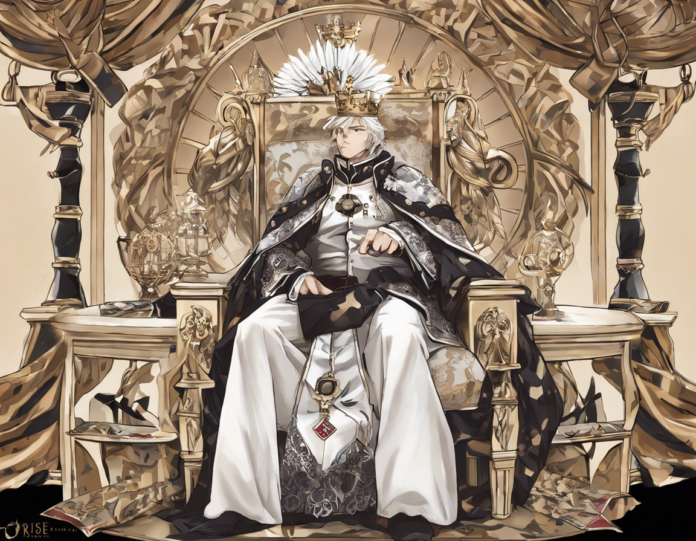Introduction
The rise of King Frederick II of Prussia, also known as Frederick the Great, is a fascinating tale of ambition, strategic cunning, and military prowess. Born in 1712, Frederick II ascended the throne in 1740 and went on to shape Prussia into a powerful and influential European state. His reign marked a period of significant transformation and innovation, leaving a lasting impact on the history of Prussia and beyond. In this article, we will delve into the key factors that contributed to Frederick the Great’s rise to power and examine the legacy he left behind.
Early Life and Education
Frederick II’s upbringing played a crucial role in shaping his future ambitions and aspirations. As the son of King Frederick William I of Prussia, he was groomed from a young age to succeed his father on the throne. However, Frederick’s relationship with his father was strained, with the young prince often feeling overshadowed and oppressed by his strict and militaristic father.
Despite his difficult upbringing, Frederick received a comprehensive education in military strategy, philosophy, and the arts. He became fluent in several languages, including French, which would later prove to be a valuable asset in his diplomatic endeavors. Frederick’s exposure to Enlightenment ideals also influenced his reign, leading him to embrace religious tolerance, legal reform, and educational advancements.
Ascension to the Throne
Upon the death of his father in 1740, Frederick II ascended the throne of Prussia at the age of 28. Despite facing internal opposition from the nobility and external threats from rival European powers, Frederick wasted no time in asserting his authority and consolidating his power. One of his first acts as king was the invasion of Silesia, a rich Austrian province, in what became known as the Silesian Wars.
Military Campaigns and Reforms
Frederick the Great is perhaps best known for his military campaigns and reforms, which transformed Prussia into a formidable military power. His tactical genius and innovative strategies, such as the use of rapid infantry movements and disciplined training, set him apart as a military leader of unparalleled skill.
One of Frederick’s most famous military victories was the Battle of Rossbach in 1757, where his outnumbered Prussian forces defeated a combined French and Austrian army. This decisive victory solidified Prussia’s reputation as a military powerhouse and earned Frederick the admiration of his contemporaries.
In addition to his military conquests, Frederick implemented a series of domestic reforms aimed at modernizing Prussia’s bureaucracy, economy, and social institutions. These reforms included the abolition of torture, the promotion of religious tolerance, and the encouragement of industry and commerce. Frederick also oversaw the construction of Sanssouci Palace, a lavish rococo-style residence in Potsdam that served as his summer retreat.
Legacy and Impact
Frederick the Great’s reign had a lasting impact on Prussian and European history. His military successes not only expanded Prussia’s territory but also elevated its status on the world stage. Frederick’s commitment to Enlightenment ideals, such as reason, tolerance, and progress, influenced his policies and governance, laying the groundwork for future reforms in Prussia and beyond.
Despite his achievements, Frederick’s legacy is not without controversy. Critics point to his aggressive expansionism and authoritarian tendencies as evidence of a ruthless and power-hungry ruler. However, supporters argue that Frederick’s pragmatic approach to governance and his dedication to the welfare of his subjects justify his actions and ensure his place in history as one of the great rulers of his time.
Conclusion
In conclusion, King Frederick II of Prussia, or Frederick the Great, stands out as a remarkable figure in European history. His rise to power, marked by military conquests, diplomatic maneuvering, and domestic reforms, solidified Prussia’s position as a major player in 18th-century Europe. Frederick’s legacy as a warrior, statesman, and patron of the arts continues to fascinate historians and enthusiasts alike, ensuring his place as a pivotal figure in the annals of Western civilization.
Frequently Asked Questions (FAQs)
1. What were Frederick the Great’s main accomplishments as King of Prussia?
As King of Prussia, Frederick the Great’s main accomplishments included expanding Prussia’s territory through military conquests, implementing domestic reforms to modernize the state, and promoting Enlightenment ideals such as religious tolerance and legal reform.
2. How did Frederick the Great’s military reforms impact Prussia’s standing in Europe?
Frederick the Great’s military reforms transformed Prussia into a powerful and respected military force in Europe. His innovative tactics, disciplined training, and strategic genius enabled Prussia to rival larger and more established European powers on the battlefield.
3. What role did Frederick the Great play in the Enlightenment movement?
Frederick the Great was a proponent of Enlightenment ideals such as reason, tolerance, and progress. He implemented religious tolerance policies, promoted education and the arts, and embraced intellectual discourse, making him a key figure in the spread of Enlightenment values in Prussia and beyond.
4. How did Frederick the Great’s relationship with his father influence his reign as King of Prussia?
Frederick the Great’s strained relationship with his father, King Frederick William I, shaped his ambitions and motivations as monarch. His desire to break free from his father’s oppressive rule and establish his own legacy drove many of his decisions and actions during his reign.
5. What was Frederick the Great’s lasting legacy on Prussian and European history?
Frederick the Great’s legacy on Prussian and European history is significant. His military conquests, domestic reforms, and embrace of Enlightenment ideals left a lasting impact on Prussia, shaping its development into a powerful and modern state. Frederick’s strategic acumen and cultural contributions cemented his status as one of the most influential rulers of the 18th century.

